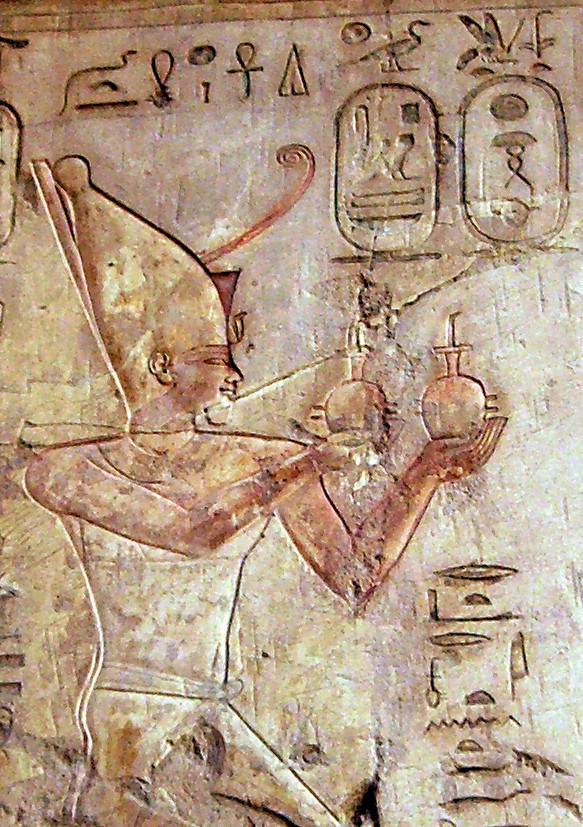La primera palabra de unos niños aislados / The first word of isolated children
La primera palabra de unos niños aislados
The first word of isolated children
The first word of isolated children
- El curioso experimento de un Faraón
- The curious experiment of a Pharaoh
Existe un curioso
relato, contado por el historiador Heródoto, en el que el Faraón Psamético I,
en el siglo VII a.c. quería conocer cuál era la primera lengua del mundo, para
esto, pidió aislar a dos niños pequeños, que fueron cuidados por un pastor mudo,
con las instrucciones de que no debían tener contacto con ninguna persona
externa, además, tenía la misión de dar a conocer cuál es la primera palabra
que estos niños aislados dijeran. Los niños solo tenían contacto con el pastor
y con una cabra de cuya leche se alimentaban. El primer sonido inteligible que
hicieron fue “bekos”, que en la antigua lengua frigia significa pan de trigo
(Gamero, 2013), con lo que el Faraón llegó a la conclusión de que esta fue la
primera lengua del mundo. Este relato es muy curioso y antiguo, aunque no
existen pruebas de su autenticidad, los filósofos Aristófanes y Apolonio,
atribuían “bekos” a un sonido onomatopéyico proveniente de la cabra que los
alimentaba (Vitto Leonese, 2016).
There is a curious story, told by the historian Herodotus, in which Pharaoh Psammetichus I, in the seventh century B.C. wanted to know what the first language in the world was, for this, he asked to isolate two small children, who were cared for by a mute shepherd, with the instructions that they should not have contact with any external person, in addition, he had the mission of giving know what is the first word that these isolated children said. The children only had contact with the shepherd and with a goat whose milk they fed on. The first intelligible sound they made was “bekos”, which in the ancient Phrygian language means wheat bread (Gamero, 2013), with which the Pharaoh concluded that this was the first language in the world. This story is very curious and ancient, although there is no evidence of its authenticity, the philosophers Aristophanes and Apollonius attributed "bekos" to an onomatopoeic sound coming from the goat that fed them (Vitto Leonese, 2016).
Referencias / References:
Cómo citar este artículo:
Nocetti, F.A. (2022). La primera palabra de unos niños aislados. NabbuBlog. http://nabbublog.blogspot.com/2022/07/la-primera-palabra-de-unos-ninos.html
How to cite this article:
Nocetti, F.A. (2022). The first word of isolated children. NabbuBlog. http://nabbublog.blogspot.com/2022/07/la-primera-palabra-de-unos-ninos.html
Gamero, A. (2013). El
faraón que quiso conocer la lengua más antigua del mundo. La piedra de Sísifo. https://lapiedradesisifo.com/2013/04/04/el-fara%C3%B3n-que-quiso-conocer-la-lengua-m%C3%A1s-antigua-del-mundo/
Vitto Leonese, R. D.
(2016). 2 niños y una cabra: El genial experimento de Psamético I. Medium. https://medium.com/@ricardodavid/2-ni%C3%B1os-y-una-cabra-el-genial-experimento-de-psam%C3%A9tico-i-7ce2e0c2a9d8
Cómo citar este artículo:
Nocetti, F.A. (2022). La primera palabra de unos niños aislados. NabbuBlog. http://nabbublog.blogspot.com/2022/07/la-primera-palabra-de-unos-ninos.html
How to cite this article:
Nocetti, F.A. (2022). The first word of isolated children. NabbuBlog. http://nabbublog.blogspot.com/2022/07/la-primera-palabra-de-unos-ninos.html






